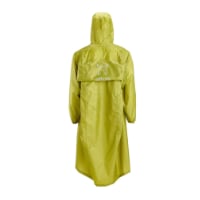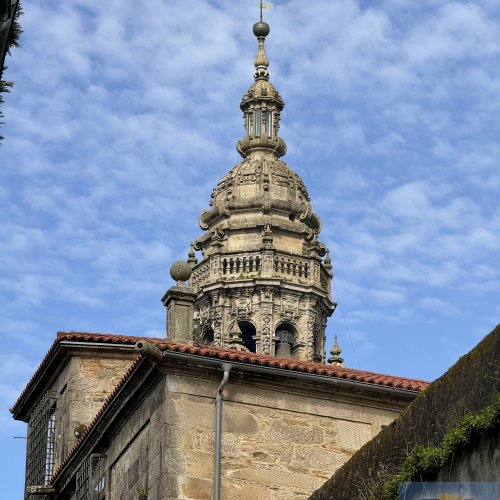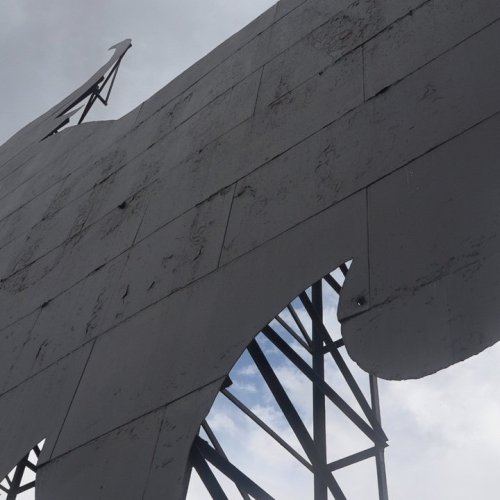sillydoll
Veteran Member
- Time of past OR future Camino
- 2002 CF: 2004 from Paris: 2006 VF: 2007 CF: 2009 Aragones, Ingles, Finisterre: 2011 X 2 on CF: 2013 'Caracoles': 2014 CF and Ingles 'Caracoles":2015 Logrono-Burgos (Hospitalero San Anton): 2016 La Douay to Aosta/San Gimignano to Rome:
http://www.laregion.es/
Mayors along the path of the French Way want to charge a nominal fee for staying in municipal sports centers. Not charging a fee for a night in shelters for the public was an old complaint of mayors along the Camino de Santiago, but charging started in Galicia in January 2008. The pilgrims began paying three euros per overnight stay, a token amount to cover the costs of maintaining and cleaning facilities.
The generalization of this rate coincided with the emergence of dozens of private shelters that have found a real business of Camino pilgrims and more sparing of the sports facilities which was the only solution not scratch the pocket. These are a free alternative that could disappear in the coming months because many of the French Way Vasconcellos completion of the formalities to approve the ordinances governing the collection pilgrims sleeping in sports facilities.
The idea that the pilgrims paid for sleeping is not new and some already had been raised before Xabobeo 93. The mayors of several Vasconcellos raised the subjet with the Xunta, but the Executive ruled by Manuel Fraga always refused to consider charging a fee in the network of public shelters. Galicia was for many years the only community on the route that did not apply the canon of overnight and kept free for the facilities. Leon, the Spanish province with more kilometers covering the camino, have been taking payment in their lodgings for more than a decade. Leon was a pioneer in seeking financial compensation for giving shelter to hikers, but over the years were joined by other communities initiative.
The mayors of the Way in Lugo did not slacken in their efforts and, in late 2003 they again put the issue on the table. They argued that paying for sleep would ease overcrowding in the shelters and would generate some extra income for municipal coffers which could hardly bear the costs to maintain acceptable conditions in the facility. There was no consensus and the aldermen decided to postpone the debate after the Holy Year (2004).
The change of government in the regional government and the arrival of San Caetano bipartite changed things. The department headed by the nationalist Fernando Blanco opened a round of consultations with Council members to assess the advantages and disadvantages of charging a fee for overnight stays.
Outweighed by the arguments for charging, in January 2008 they began charging the fee. The criticism quieted as caterers and private lodge owners, who saw in the public inns unfair competition, served also to diminish the endless queues every noon at the doors of shelters to get a bed.
'It was an untenable situation for many businesses. We are not a place with more tourist attraction that the Way and our revenues depend critically on the pilgrims' explains Gabriel Rodriguez, Teodora pension house in Arzúa. "Our establishment opted for a stake of quality and low cost fled because they wanted to get into that game. We joined several packages and tourist agencies we work mostly with reserves of pilgrims willing to pay a reasonable price to sleep in a much better place than a hostel. That was our bet, but other hotels and pensions had to lower prices much to prevent the entire clientele going to shelters or sports facilities. "
The free, contrary to what the pessimists predicted, did not end with one of the most important claims for those who undertook the route with religious motivations. The payment of three euros for the business served tilts the many private lodges that have opened in recent years in the late stages of the French Way. 'The truth is that we have noticed a slight increase in overnight stays since January 2008 began to gather in public,' explains Borja Rodríguez of private hostel Milky Way.
Pay services: The money raised goes to clean and improve the services of these accommodations, which volunteers assumed the maintenance of until a couple of years ago. The response of the pilgrims to this measure was in line positive. 'It is a nominal charge and it is normal to offer the traveler accommodations in conditions', says Marta, Madrid pilgrim who had just completed the route from Pedrafita do Cebreiro. 'If this rate has used to improve shelters, I do not think too much,' he added Mauro, Brazilian student who has spent nearly a month to the French Way.
Those who opt for these dates to make a pilgrimage to Compostela have no problems finding beds in shelters, but in summer and in the Holy Year a difficult mission. The tents set up by Vasconcellos and municipal sports centers are the most viable options in high season. 'And it is free, "said Luis and Marta, Pilgrim recidivists and specialists in backpacker tourism.
'It is normal to charge the pilgrims because the summer months and have cornered the sports disabled ", says Mario, a resident of the town. 'We, have been charged for the sports book when we play a game with friends. Pilgrims must also pay at least by light and hot water they spend. We're not going to pay for their vacation. "
The rulers of other municipalities, such as Melide Portomarín and work in the drafting of the ordinance, which could be published in the coming weeks. 'It will be a token amount to compensate for expenses saod Cea, Mayor Melide.
The move on religious, cultural and, of course, economic. Many are on the road for a low cost vacation , a very good option when pressing the crisis and have to tighten their belts. While indicators point to a decline in tourist activity, Camino is still a safe bet, and the influx of travelers has been maintained and even increased in recent years. The forecasts for this Xacobeo 2010 are optimistic and confident that the Xunta the pilgrimage route is the engine that drive the community towards the path of economic recovery.
A pilgrim spends a day on average thirty euros, according to a study by the Associated Chambers of Jacobean Roads. Not all tourists arriving in Santiago do so for any of the route, but their contribution is sufficient to cover maintenance costs of inns or sports facilities.
1 million pilgrims this year:
The more than sixty public shelters in Galicia raise more than $ 3,000 daily in overnight stays, which in this Holy Year could triple. The figures vary between 250,000 and 300,000 pilgrims a year, but forecasts suggest the Department of Tourism for this Xacobeo 2010 to one million travelers who can pass through the network of public shelters.
The first test will come in just over two months, at Easter. Many Vasconcellos intend to enable municipal sports centers and other facilities to give shelter to the wayfarer. It will not, in any case, be a work of mercy. The pilgrims have to go through cash in exchange for a mattress and a hot shower
Mayors along the path of the French Way want to charge a nominal fee for staying in municipal sports centers. Not charging a fee for a night in shelters for the public was an old complaint of mayors along the Camino de Santiago, but charging started in Galicia in January 2008. The pilgrims began paying three euros per overnight stay, a token amount to cover the costs of maintaining and cleaning facilities.
The generalization of this rate coincided with the emergence of dozens of private shelters that have found a real business of Camino pilgrims and more sparing of the sports facilities which was the only solution not scratch the pocket. These are a free alternative that could disappear in the coming months because many of the French Way Vasconcellos completion of the formalities to approve the ordinances governing the collection pilgrims sleeping in sports facilities.
The idea that the pilgrims paid for sleeping is not new and some already had been raised before Xabobeo 93. The mayors of several Vasconcellos raised the subjet with the Xunta, but the Executive ruled by Manuel Fraga always refused to consider charging a fee in the network of public shelters. Galicia was for many years the only community on the route that did not apply the canon of overnight and kept free for the facilities. Leon, the Spanish province with more kilometers covering the camino, have been taking payment in their lodgings for more than a decade. Leon was a pioneer in seeking financial compensation for giving shelter to hikers, but over the years were joined by other communities initiative.
The mayors of the Way in Lugo did not slacken in their efforts and, in late 2003 they again put the issue on the table. They argued that paying for sleep would ease overcrowding in the shelters and would generate some extra income for municipal coffers which could hardly bear the costs to maintain acceptable conditions in the facility. There was no consensus and the aldermen decided to postpone the debate after the Holy Year (2004).
The change of government in the regional government and the arrival of San Caetano bipartite changed things. The department headed by the nationalist Fernando Blanco opened a round of consultations with Council members to assess the advantages and disadvantages of charging a fee for overnight stays.
Outweighed by the arguments for charging, in January 2008 they began charging the fee. The criticism quieted as caterers and private lodge owners, who saw in the public inns unfair competition, served also to diminish the endless queues every noon at the doors of shelters to get a bed.
'It was an untenable situation for many businesses. We are not a place with more tourist attraction that the Way and our revenues depend critically on the pilgrims' explains Gabriel Rodriguez, Teodora pension house in Arzúa. "Our establishment opted for a stake of quality and low cost fled because they wanted to get into that game. We joined several packages and tourist agencies we work mostly with reserves of pilgrims willing to pay a reasonable price to sleep in a much better place than a hostel. That was our bet, but other hotels and pensions had to lower prices much to prevent the entire clientele going to shelters or sports facilities. "
The free, contrary to what the pessimists predicted, did not end with one of the most important claims for those who undertook the route with religious motivations. The payment of three euros for the business served tilts the many private lodges that have opened in recent years in the late stages of the French Way. 'The truth is that we have noticed a slight increase in overnight stays since January 2008 began to gather in public,' explains Borja Rodríguez of private hostel Milky Way.
Pay services: The money raised goes to clean and improve the services of these accommodations, which volunteers assumed the maintenance of until a couple of years ago. The response of the pilgrims to this measure was in line positive. 'It is a nominal charge and it is normal to offer the traveler accommodations in conditions', says Marta, Madrid pilgrim who had just completed the route from Pedrafita do Cebreiro. 'If this rate has used to improve shelters, I do not think too much,' he added Mauro, Brazilian student who has spent nearly a month to the French Way.
Those who opt for these dates to make a pilgrimage to Compostela have no problems finding beds in shelters, but in summer and in the Holy Year a difficult mission. The tents set up by Vasconcellos and municipal sports centers are the most viable options in high season. 'And it is free, "said Luis and Marta, Pilgrim recidivists and specialists in backpacker tourism.
'It is normal to charge the pilgrims because the summer months and have cornered the sports disabled ", says Mario, a resident of the town. 'We, have been charged for the sports book when we play a game with friends. Pilgrims must also pay at least by light and hot water they spend. We're not going to pay for their vacation. "
The rulers of other municipalities, such as Melide Portomarín and work in the drafting of the ordinance, which could be published in the coming weeks. 'It will be a token amount to compensate for expenses saod Cea, Mayor Melide.
The move on religious, cultural and, of course, economic. Many are on the road for a low cost vacation , a very good option when pressing the crisis and have to tighten their belts. While indicators point to a decline in tourist activity, Camino is still a safe bet, and the influx of travelers has been maintained and even increased in recent years. The forecasts for this Xacobeo 2010 are optimistic and confident that the Xunta the pilgrimage route is the engine that drive the community towards the path of economic recovery.
A pilgrim spends a day on average thirty euros, according to a study by the Associated Chambers of Jacobean Roads. Not all tourists arriving in Santiago do so for any of the route, but their contribution is sufficient to cover maintenance costs of inns or sports facilities.
1 million pilgrims this year:
The more than sixty public shelters in Galicia raise more than $ 3,000 daily in overnight stays, which in this Holy Year could triple. The figures vary between 250,000 and 300,000 pilgrims a year, but forecasts suggest the Department of Tourism for this Xacobeo 2010 to one million travelers who can pass through the network of public shelters.
The first test will come in just over two months, at Easter. Many Vasconcellos intend to enable municipal sports centers and other facilities to give shelter to the wayfarer. It will not, in any case, be a work of mercy. The pilgrims have to go through cash in exchange for a mattress and a hot shower









